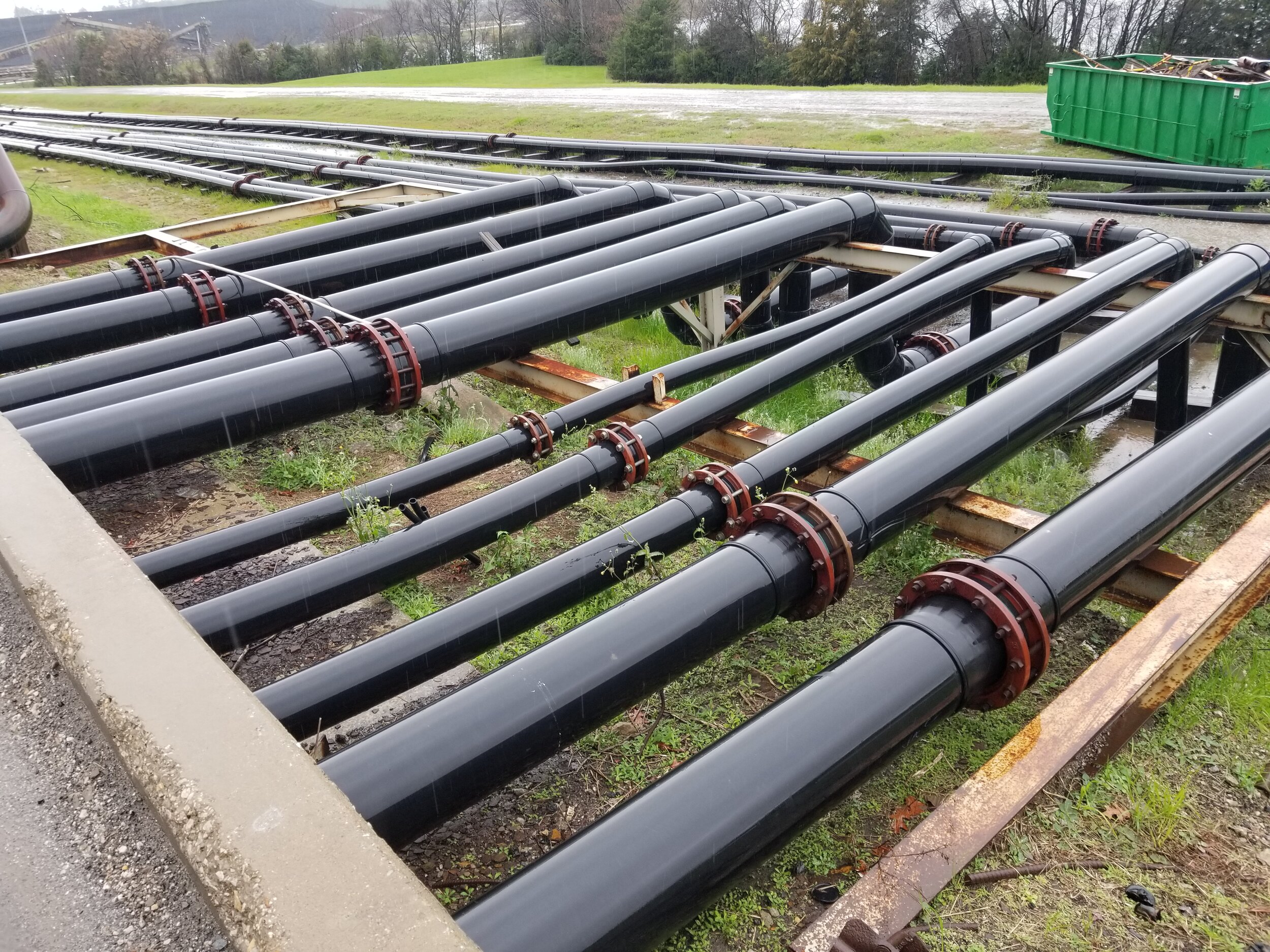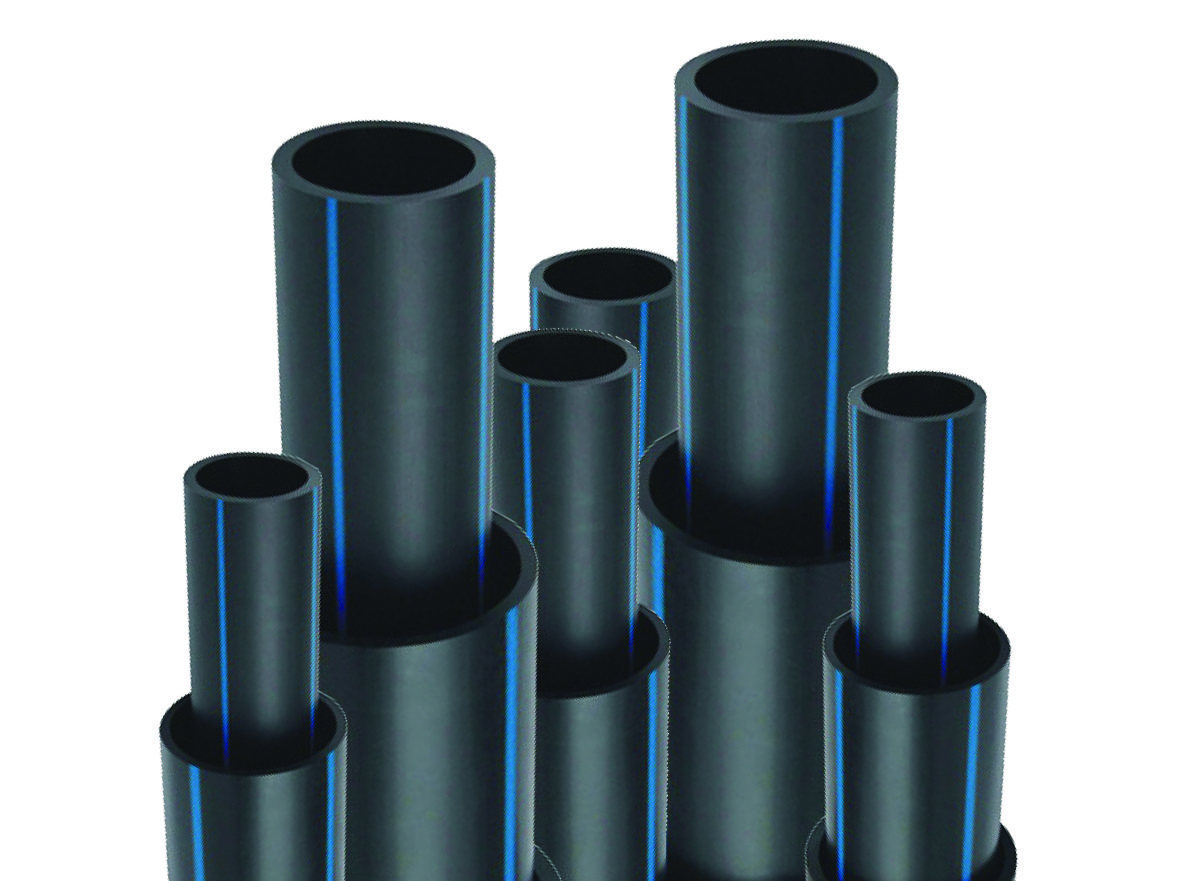American Plastics HDPE Pipe for Oilfield: Durability in Harsh Environments
Wiki Article
Recognizing the Key Advantages of HDPE Pipeline for Water and Wastewater Management
Making use of HDPE pipe in water and wastewater monitoring offers many advantages that merit factor to consider. Its exceptional durability and long lifespan make it a preferred selection for many projects. In addition, the product's resistance to rust and chemical damage boosts its integrity in various environments. The benefits prolong beyond just longevity and resistance. Midland TX HDPE Pipe Fittings in Stock. Exploring its cost-effectiveness and ecological effect reveals much more compelling factors for its widespread adoption in contemporary facilitiesExceptional Sturdiness and Long Life

HDPE pipeline attracts attention for its phenomenal longevity and longevity, making it a favored selection in water management systems. Built from high-density polyethylene, these pipelines can hold up against significant stress and tension, guaranteeing trusted efficiency with time. Their durable nature enables them to endure extreme ecological problems, consisting of temperature level changes and soil motions, which can trigger various other products to stop working.
The life-span of HDPE pipelines typically surpasses half a century, giving a cost-effective remedy for communities and industries alike. Additionally, the material's light-weight residential or commercial properties simplify installation, reducing labor costs and durations. This resilience minimizes the need for constant repair work or replacements, better boosting its financial charm.
In water monitoring applications, the integrity of HDPE pipelines implies fewer interruptions and improved service connection, making them indispensable to lasting framework development. The combination of sturdiness and durability strengthens HDPE's function as a keystone in efficient water administration remedies.

Resistance to Deterioration and Chemical Damage
While many products succumb to rust and chemical damages gradually, HDPE pipes show exceptional resistance, making them ideal for various water management applications. This resilience comes from the molecular framework of high-density polyethylene, which is naturally non-reactive and does not rust like metals or weaken from direct exposure to severe chemicals. Therefore, HDPE is very effective in atmospheres with aggressive materials, such as wastewater systems that may contain acids, bases, and natural solvents.
Additionally, HDPE pipelines can endure ecological aspects such as dirt acidity and saline problems, even more improving their suitability for varied applications (custom hdpe pipe manufacturing Midland TX). Their ability to maintain architectural stability gradually reduces the threat of leakages and failings, which is vital in making sure the safety and integrity of water distribution and wastewater monitoring systems. Consequently, the resistance to corrosion and chemical damage markedly adds to the overall efficiency and long life of HDPE piping remedies
Cost-Effectiveness and Economic Advantages
When taking into consideration the monetary ramifications of water administration systems, the cost-effectiveness of HDPE pipes comes to be noticeable. These pipes provide reduced setup and upkeep expenses compared to typical products like steel or concrete. Their lightweight nature streamlines transportation and installment, resulting in reduced labor expenses. In addition, HDPE pipes exhibit a long lifespan, commonly exceeding 50 years, which equates to less substitutes and long-term savings.The resistance of HDPE to corrosion and chemical damage decreases the demand for expensive fixings and replacements. The pipelines also support effective water flow, minimizing energy expenses connected with pumping systems. By reducing leakages and water loss, HDPE pipelines add to substantial economic benefits for municipalities and sectors alike. Overall, the first investment in HDPE piping see this can generate considerable monetary returns over the life expectancy of the water administration system, making it a prudent option for lasting infrastructure advancement.
Environmental Sustainability and Decreased Influence

Convenience and Flexibility in Setup
Because of their special homes, HDPE pipelines supply remarkable adaptability and versatility in setup, making them ideal for a large range of applications. Their light-weight nature enables easier handling and transport, decreasing labor website here expenses and setup time. HDPE pipes can be bent and formed to fit numerous surfaces and project demands, which is especially beneficial in challenging atmospheres.Furthermore, their resistance to deterioration and chemical damage enables installation in varied settings without the need for specialized safety layers. The capability to fuse joints produces a constant, leak-free system, improving the total honesty and integrity of the installation. HDPE's flexibility also accommodates ground activity, reducing the risk of damage in areas prone to moving dirt. On the whole, these attributes make HDPE pipelines not only versatile yet also a preferred selection for water and wastewater monitoring systems.
Regularly Asked Questions
Just How Does HDPE Pipeline Compare to PVC in Water Management Applications?
HDPE pipeline offers premium flexibility, resistance to deterioration, and sturdiness compared to PVC. Its lighter weight helps with simpler installment, while its long lifespan decreases substitute expenses, making HDPE a recommended selection in water management applications.What Is the Lifespan of HDPE Water Lines Under Common Conditions?
Under common problems, HDPE pipes can have a lifespan varying from 50 to 100 years. Their sturdiness and resistance to rust contribute to their long-term efficiency in numerous applications, making them a trusted selection for facilities.Are HDPE Piping Recyclable After Their Solution Life?
Yes, HDPE pipelines are recyclable after their life span. Pipe Manufacturing Midland TX. They can be refined and repurposed right into new items, considerably lowering ecological impact and promoting sustainability within the sector, making them an environment-friendly choice for piping optionsWhat Is the Setup Process for HDPE Piping?
The installation procedure for HDPE pipelines includes site prep work, trenching, pipeline fusion or mechanical signing up with, backfilling, and stress testing. Appropriate strategies guarantee a long lasting and reliable system for carrying water and wastewater effectively.Can HDPE Water Lines Be Made Use Of for Both Potable and Non-Potable Water Solutions?
Yes, HDPE pipelines can be made use of for both potable and non-potable water supply. Their flexibility, longevity, and resistance to deterioration make them ideal Our site for numerous applications, guaranteeing risk-free and effective transportation of water in various contexts.Report this wiki page